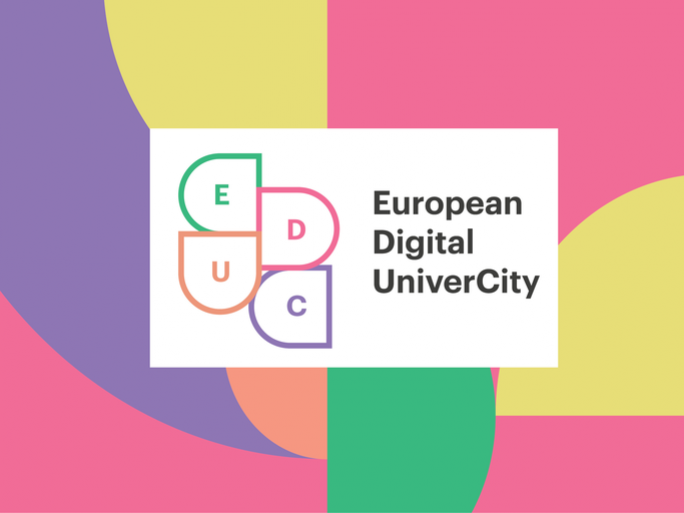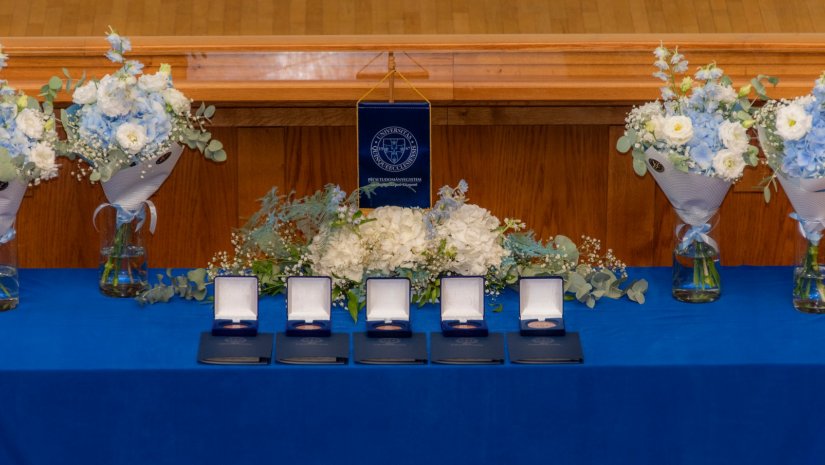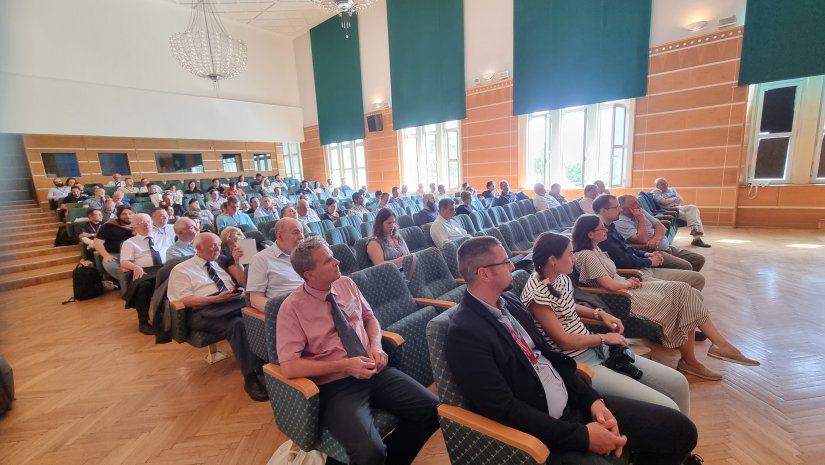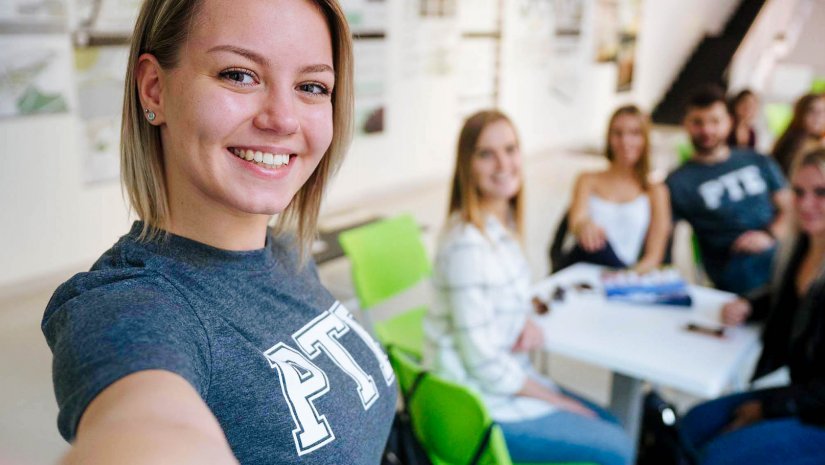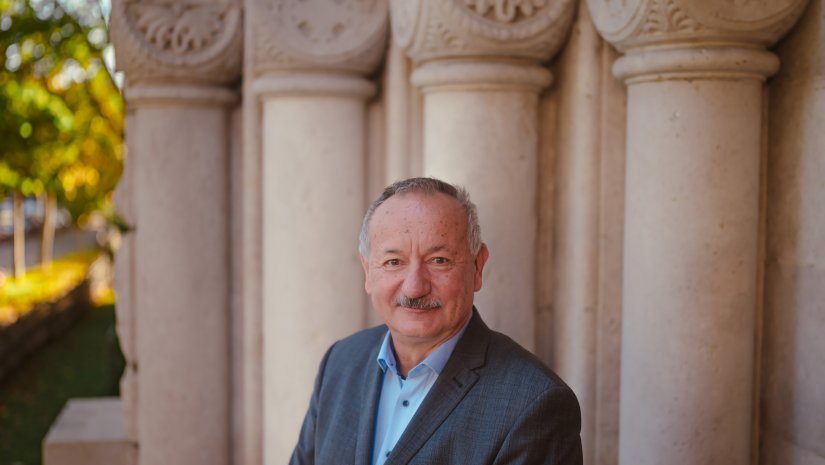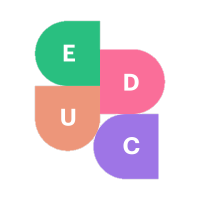 The European Digital UniverCity (EDUC) consortium, established as part of the European Commission's European Universities Initiative, organized its second Good Practices Training at the University of Pécs. The aim of the hybrid training was to discuss the good practices and experiences concerning internationalization and regional outreach strategies, and to jointly develop and define a unified framework for the further actions plans of the alliance. The next step is an upcoming international seminar in May organized by the University of Pécs. We asked Dr. Břetislav Dančák, statutory vice-rector and vice-rector for internationalization of Masaryk University, Brno in the Czech Republic and Prof. Dr. István Tarrósy, director of the International Centre, University of Pécs about EDUC’s progress.
The European Digital UniverCity (EDUC) consortium, established as part of the European Commission's European Universities Initiative, organized its second Good Practices Training at the University of Pécs. The aim of the hybrid training was to discuss the good practices and experiences concerning internationalization and regional outreach strategies, and to jointly develop and define a unified framework for the further actions plans of the alliance. The next step is an upcoming international seminar in May organized by the University of Pécs. We asked Dr. Břetislav Dančák, statutory vice-rector and vice-rector for internationalization of Masaryk University, Brno in the Czech Republic and Prof. Dr. István Tarrósy, director of the International Centre, University of Pécs about EDUC’s progress.
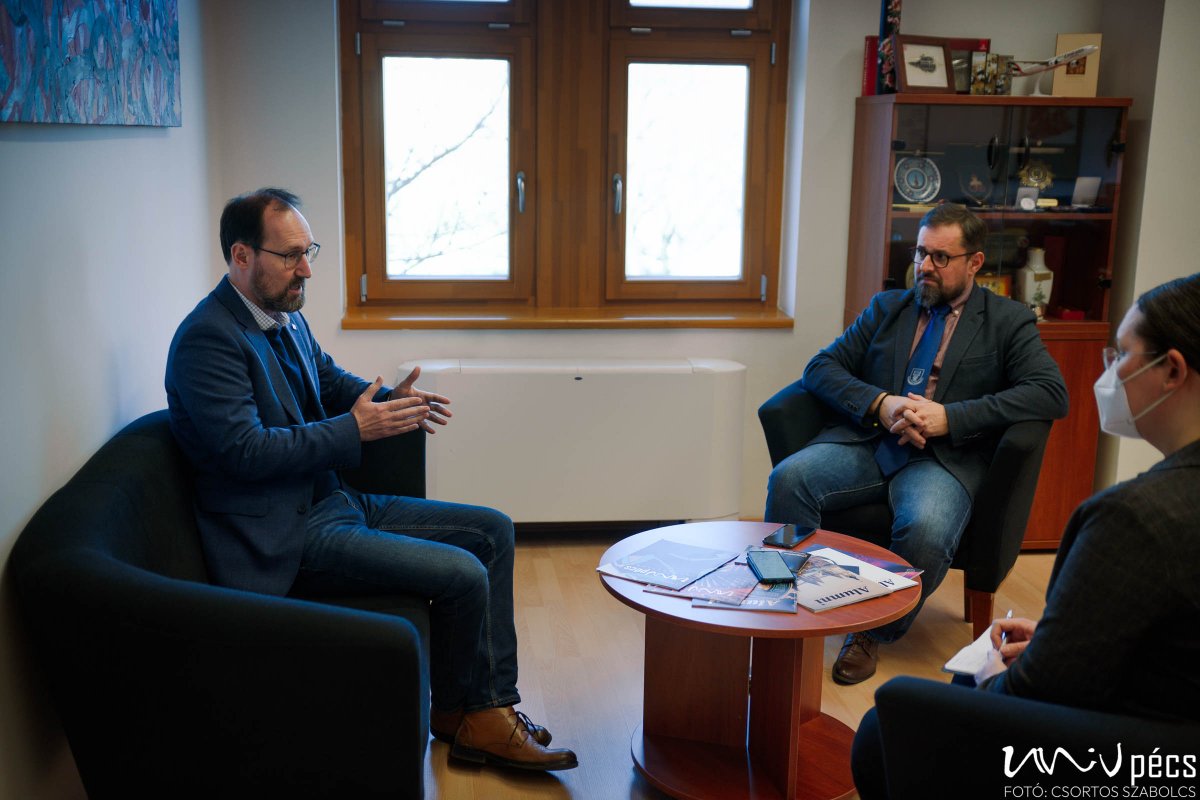
Dr. Dančák, could you please introduce yourself?
Dančák: I am responsible for internationalization as a main goal, but I am also responsible for the everyday life of Masaryk University, when the rector is not present, because of his duties as Chairman of the Czech Rector’s Conference. My duties are a little bit bigger or wider than coordinating our internationalization efforts. And as we know, internationalization is not a narrow topic, and we try to make internationalization as wide as possible, simply by trying to reach each academic, each member of staff and all the students with the idea that the university as such should be naturally internationalized, because that is the way of life of universities.
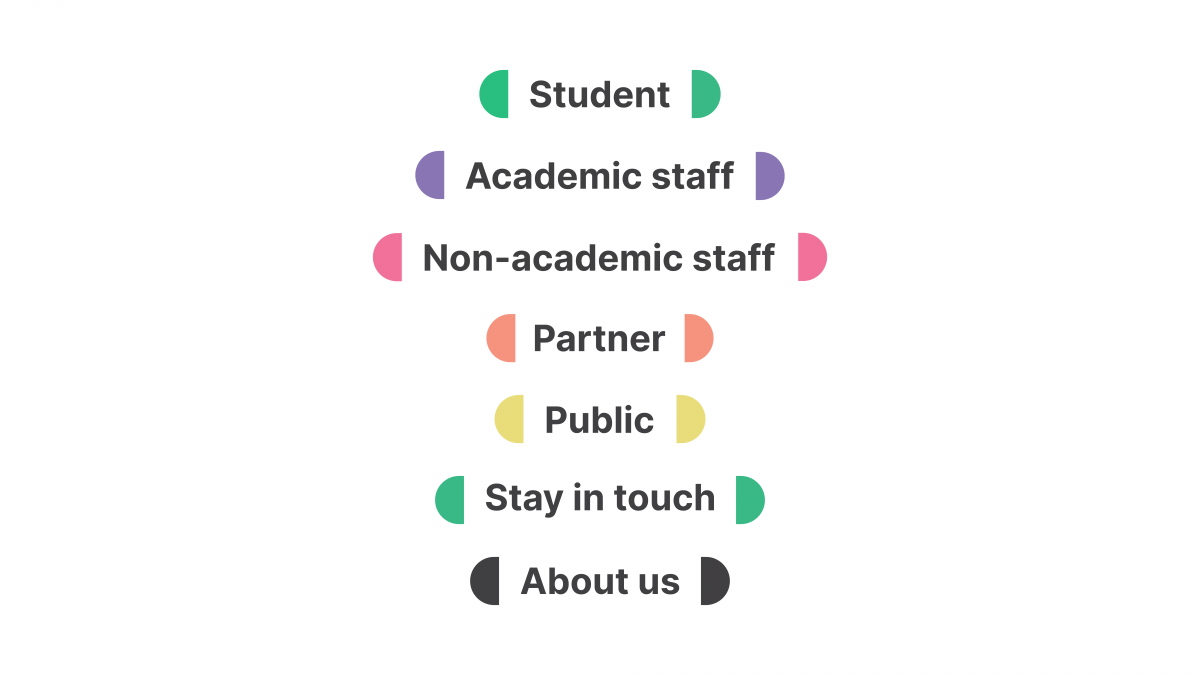
Even the term internationalization means something a little bit artificial for me, because centuries ago, since Bologna, as the first university in the world, it was natural that academicians, scholars moved from one place to another place, students followed the professors, because knowledge and university education were internationalized per se. It was not obligatory, but normal for a good scholar, they would spend some time at different universities. Usually when we read biographies of statemen and significant persons in our histories, we usually look at the period, for example when President Masaryk started his academic career he spent a time in Leipzig, in Vienna, then later moved to Prague, and so on. For me, internationalization is a rather natural state of life at university to which we are again moving.
Tarrósy: I fully agree with this. During our seminar, we discussed internationalization in depth and underscored that it is an interconnecting thread, a natural feature of universities in general. Higher education is not possible to be in existence without all these natural, international dimensions. Therefore, I think that universities in the 21st century and all formations of universities, alliances, such as EDUC, cannot function without a proper understanding of how they wish to work with the international environment and work within the institutions with internationalization.
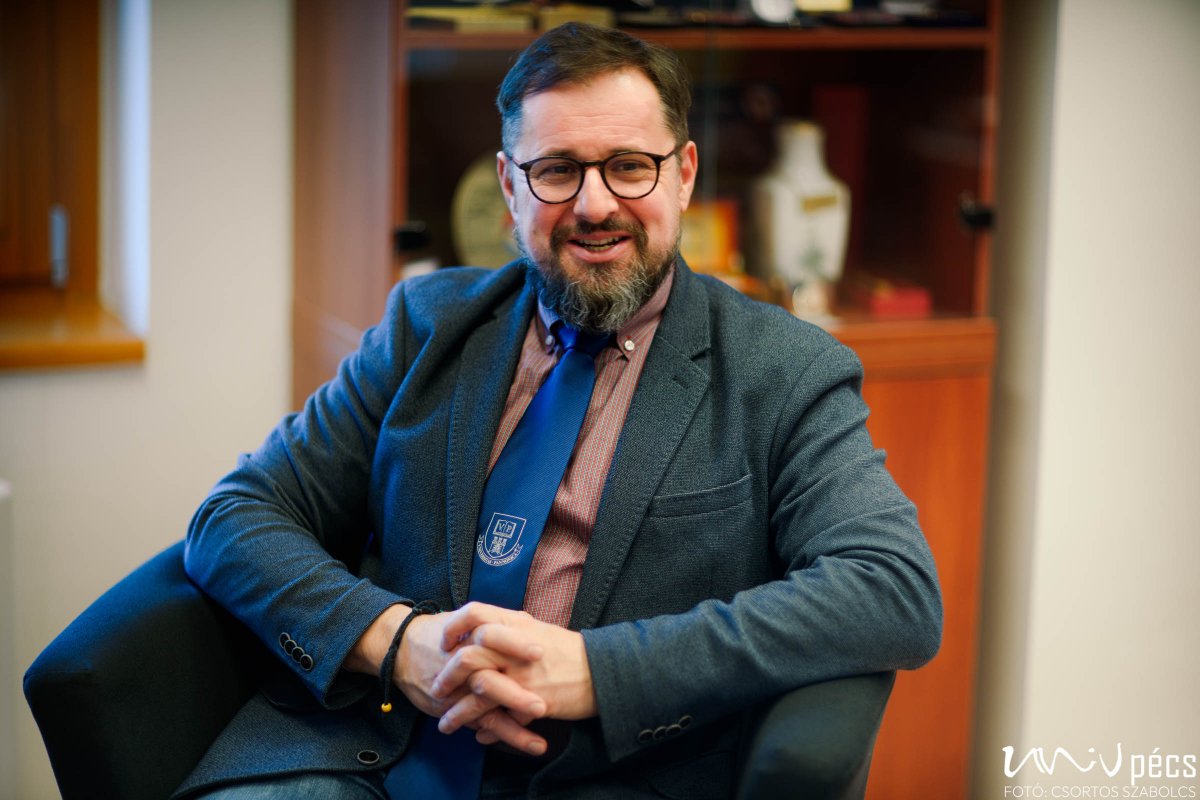
Dančák: Of course, internationalization is the way, how we compete with other universities. The EDUC alliance helps us create unity, how we can succeed in our efforts to be attractive to students, scholars and provide excellent education. That is the main reason why we are here. As you can imagine, each alliance with more than 2-3 members has some discussion, what the priorities and next steps should be. Currently, we are preparing for the next call, EDUC 2, and I see that with Pécs we have many common interests, and we understand each other in many ways, what should be done to help our universities to reach better positions in international rankings. I am very glad that Pécs is part of EDUC, we have a very long-term, fruitful cooperation. I think that we have a strong foundation, on which we can build our cooperation within EDUC and further.
Tarrósy: I need to respond right away in a very factual manner, because in 2018, we were given a phone call from Masaryk University, Brno, whether we wish to join with them the EDUC Alliance. They were just in the process of finding yet another partner, and for Brno it was us to be given an invitation, based upon these strategic partnerships that we have been caring for and carving out for twenty years or so. It is basically a natural alliance in our macro region, along the lines of mutual interest, common cultural heritage, and interest in the sense of being more visible, more competitive internationally, now using this level of the alliance. That is a new framework. During the seminar, we were working on the details of the future framework of positioning EDUC and via EDUC, all the members.
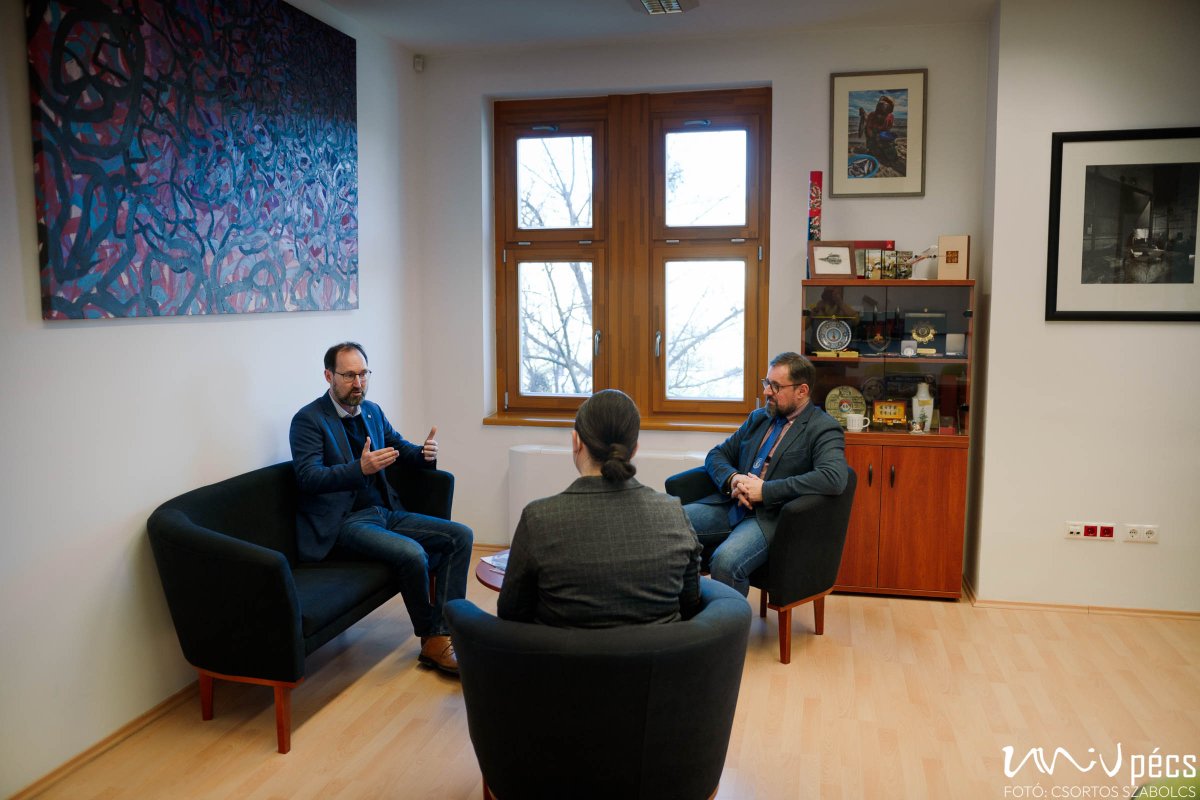
Have you come up with such a framework?
Tarrósy: At the second EDUC Good Practices Training in Pécs, we looked into the best practices of the individual members. We learned from each other’s presentations, who does what in a good manner, and in a nice and probably exemplary manner, and we listed twenty items. Let that be an approach to an integrated master’s programme, or a new platform to work with industrial partners, a communication technique, how to reach out to different age groups, for example at UP’s seniors’ academy. We had many similar, as well as numerous unique exemplary cases that we could learn from, that we could put into this draft, which of course would be deliberated in detail and the plan is that until the end of the pilot phase, by which we will have known how much we won with the new grant application. By autumn, this framework will be worked out in detail, and will be used for the coming years. It is about how to reach out and work with regional and international partners, within the alliance, as well as among the members of the alliance.
May I ask what kind of time frame are we talking about concerning these plans?
Tarrósy: The plan is from this particular year on, from the fall. We need to come up with a detailed plan by the end of this project season, until the end of the pilot phase. But that will be taken over to the next phase of the alliance, EDUC 2, as we call it. The time frame is that in half a year, we will vote on this framework, but that will already be put into the next phase, which will start hopefully from 2023-24.
How has COVID influenced the plans of EDUC in the past two years?
Dančák: The pandemic situation has significantly catalysed every effort we had before COVID in the sense of making our education and administrative procedures much more digitalized. For example, in the case of Masaryk University, we had ideas we aimed to move ahead with, and there was a smooth timetable, but due to COVID, it was done in the shortest of time. Yesterday was too far. We did everything very quickly, and I think that our experiences are similar, and were also very useful for EDUC purposes, especially the online courses. Of course, we believe that blended courses would be nice to do, but unfortunately COVID situation banned travelling, so we have courses mainly in online version. It is nice to see that for example in courses concerning European issues, which are at the core of our activities, we both offered the majority of courses within the alliance. That was a sign that our cooperation has been very strong and fruitful for years between our departments, faculties.
COVID made our lives less happy, but at the same time, we showed up as stronger institutions, as we know, each crisis produced winners and losers. I think that we are on the winner side as universities, and of course we had no choice. As we all agree, the physical education is better. In site education is always better, because of the interaction between the professors and students, but in current times, and in the near future, there will be a number of students, applicants, asking if something happened in the world, or your country, are you ready to provide me education, for which I am looking for in any circumstances? Yes, we will! Because we showed you, that online education or tools we can use, are well in place, and you will get your diploma as a regular student. I think, we should keep in mind that these can be factors in decision making by applicants. Of course, they wish to have physical education, but I think somewhere in their brain, there is this question, that if something happened, what will happen if I am in the Czech Republic, or Hungary, with my education.
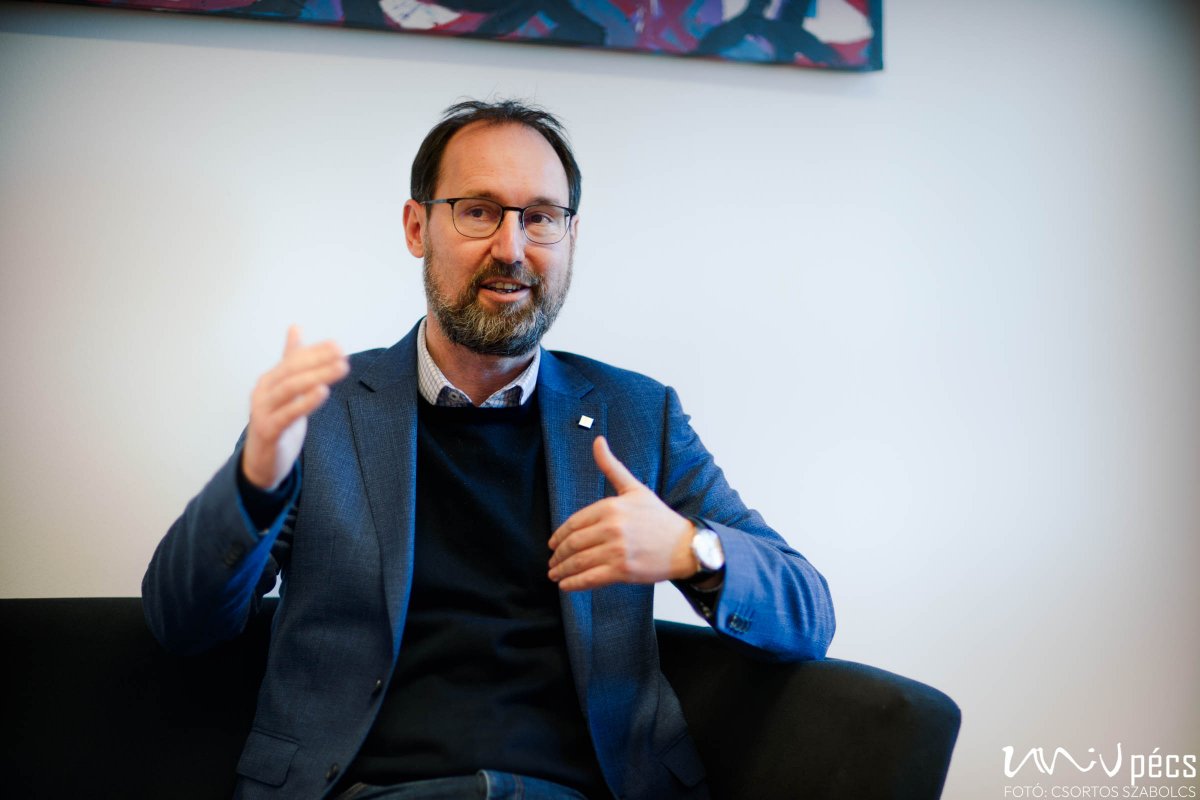
Tarrósy: I agree. The institutions became stronger, more resilient. Not just the institutions, but student populations, teaching staff and all others. Of course, it is always much better to meet in physical format, because that is the real human nature of going over certain things, discussing and agreeing upon things or disagreeing. However, we are now resilient enough, to provide education, organize workshops virtually, or in a hybrid form, as we did it at this particular EDUC Good Practices Training seminar. And it was really great in terms of time management, being and staying focused, as well as having certain debates. We have learned a lot about those tools, and techniques.
Have you managed to achieve everything that was planned for the EDUC alliance so far?
Tarrósy: I think we have achieved a lot of things, and there are still undergoing projects, and still one year left. It is running smoothly, in certain project elements and expectations, we have already achieved, what we planned to achieve by the end of the pilot phase. In certain others, because of COVID, we were slower. We need further discussions on national legislations, how to come together and make it so, that at a certain point, EDUC becomes a legal entity. That is an aspiration, which is not that easy at all. We are absolutely determined to keep up with the good work and achieve what we want.
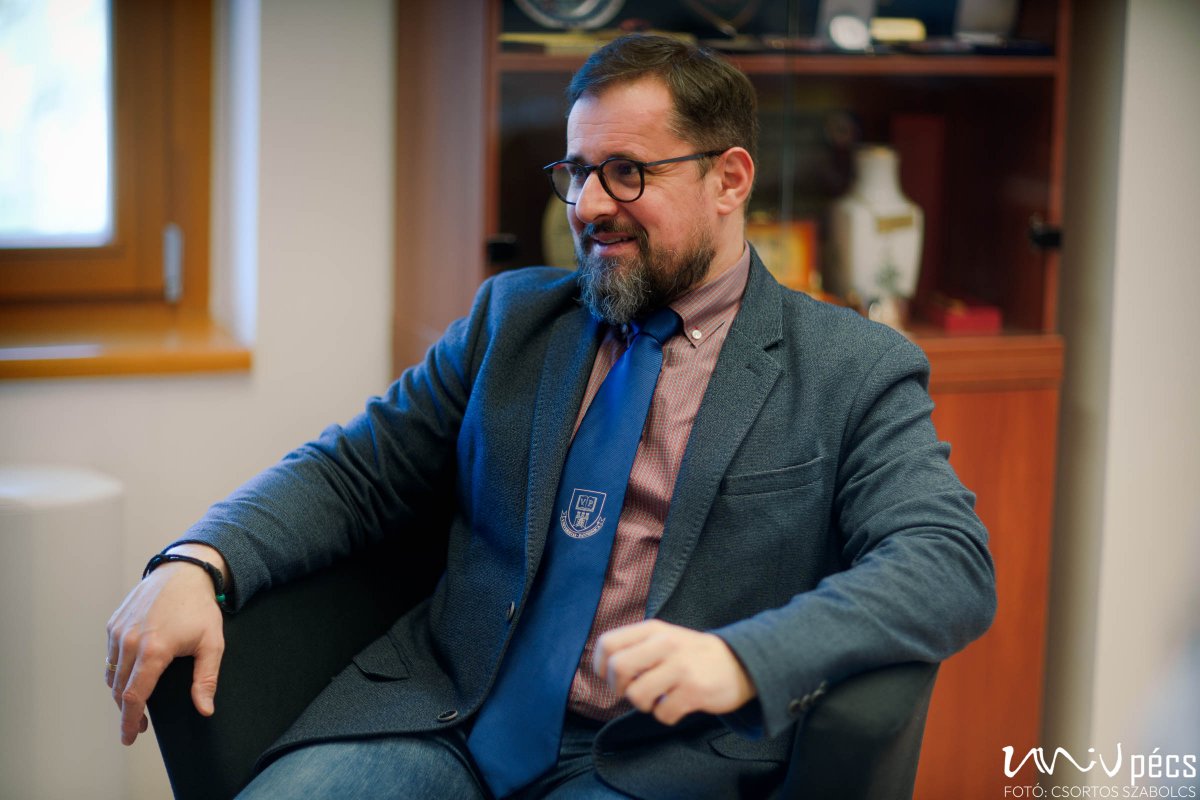
Dančák: We also serve as an example for the next call by the European Commission, it is an experiment. What was done with these alliances, is a new way of education and research in some way, a combination with Erasmus+ and Horizon Europe schemes. I think that our experiences are useful for finding good solutions for the next call of applications. That is the important part of our cooperation: what is possible in the European framework? Because we have nice documents, beautiful declarations, but sometimes, you reach the actual office in your institution, and there are people working for decades in some ways and you need to accommodate these declarations to situations in your institution, and vice versa. That is a two-way process, I would say.
How smoothly is the transitioning of students going? Are they attracted to the programmes that you are offering?
Tarrósy: More and more so, certainly! What we can see is for instance applications and enrolment in certain courses now offered as EDUC opportunities, we see a huge rise in those interested. This opening up of the landscape of available courses, now co-taught courses, collaboratively handled courses are certainly interesting for students.
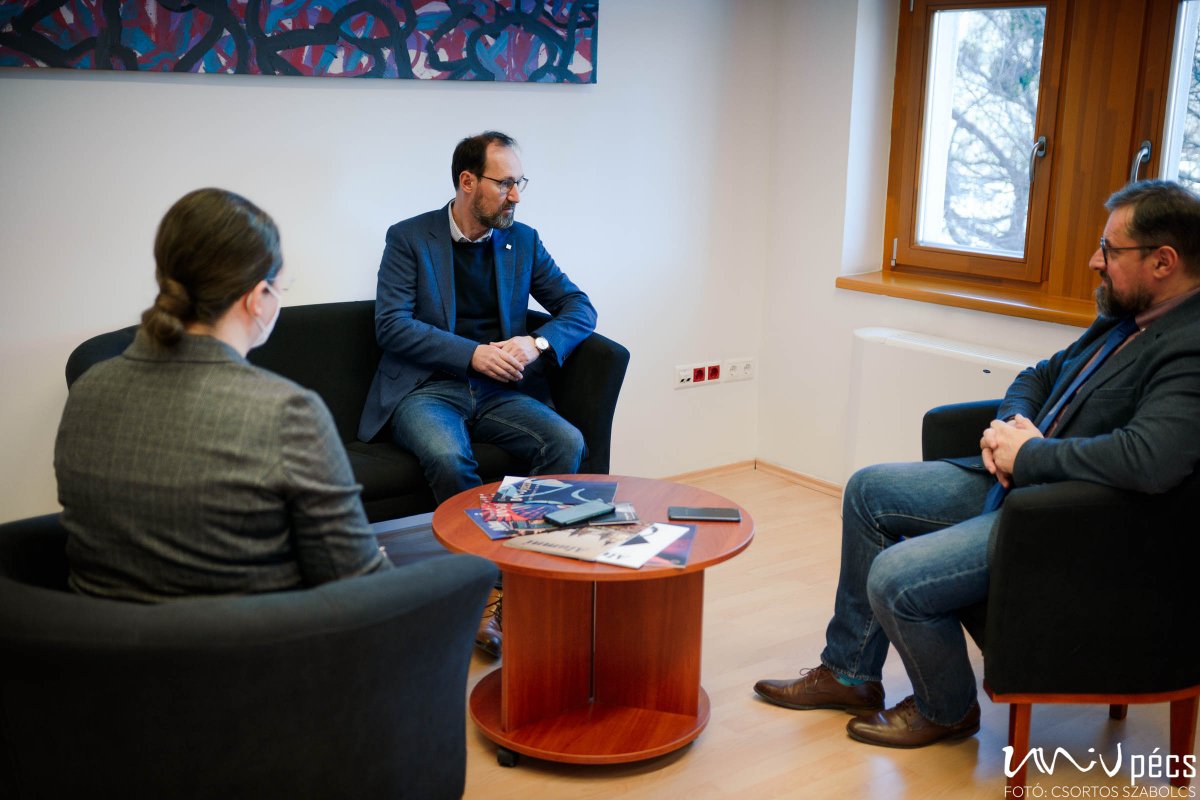
Dančák: What is some kind of a challenge, or issue we should be focusing on, having EDUC working through whole university, because sometimes there are faculties, which are eager to cooperate, and have natural partners within the alliance and some faculties are staying a little bit alone, because there is no natural partner on the other sites. It means that not all universities, which are members of EDUC, have the same structure of faculties. We (MUNI and Pécs) have almost the same ten faculties, from humanities, social sciences, to medicine, pharmacy. We are typical Central European universities, I would say. Nevertheless, some partners have different structure of faculties. Therefore, that is the one point I would like to focus on in the next call, to have as many academicians and scholars as possible involved in activities, which should produce the synergy effect.
Tarrósy: Exactly! And I am happy to have the two new partners, from Spain and Norway, because now the portfolio of the whole alliance is much wider, for instance in our case, in the case of Pécs, one of the faculties so far that could not be actively be part of EDUC was the Faculty of Music and Visual Arts. But now, with the Spanish partnership we can foresee certain areas to come together, in design, ceramic design, for example. Then, they can also get on board. That is the point in internationalization, as we discussed it, how to get everybody on board. Because it affects all our minds, so we all should get on board, so that we can be actively forming and transforming it. And I agree with Břetislav, how to form as many possible alliances within the alliance, as you can imagine. That is the next phase for sure.
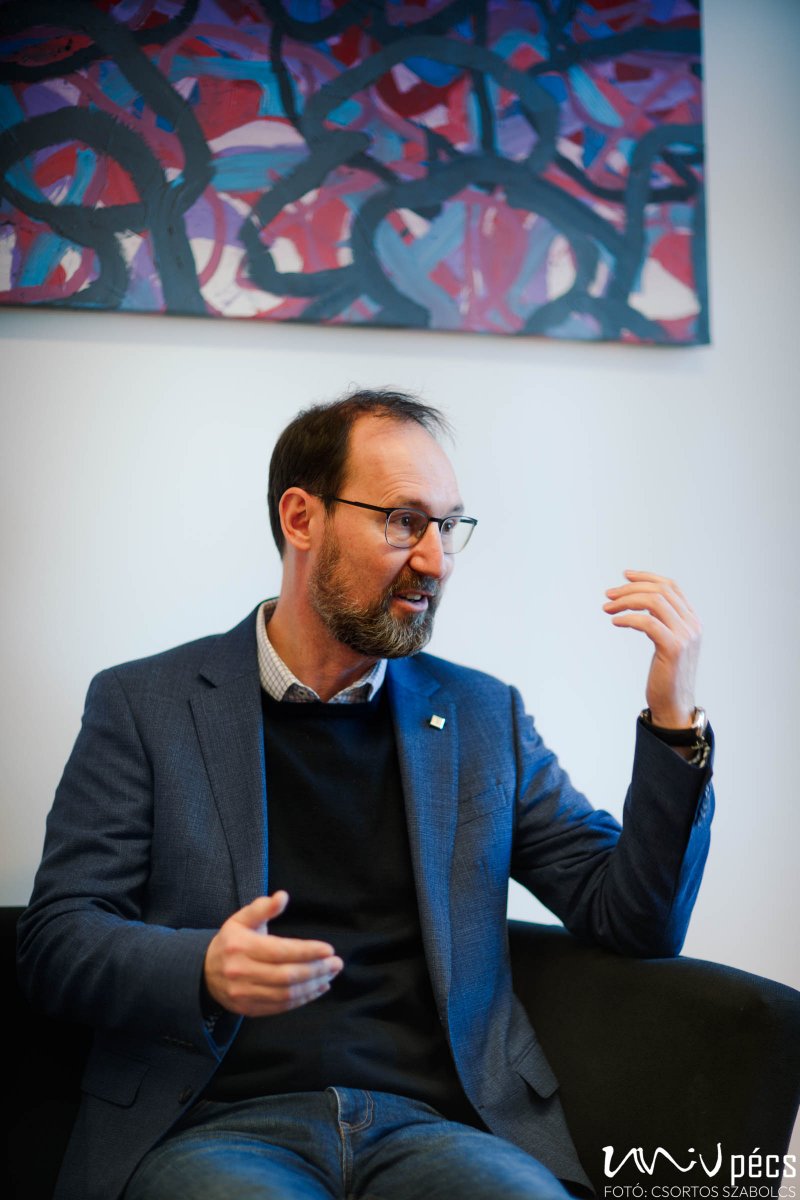
Dančák: Maybe one other point could be mentioned concerning the administrative staff. As we know, academicians should be prepared for international communication and so on. Students are sent abroad, and we accept students to make internationalization at home, and I think that EDUC will help us to internationalize also our administrative staff. Colleagues from different departments, offices, even accounting office. Because sometimes we should solve the problem with partners abroad, which need certain understanding, why it is not possible according to Czech, Hungarian, or French law and it is easier to have a partner with whom you can communicate directly. My vision is to have a group of people of certain levels of decision-making process, directors of offices, who will be sent to our partner institutions, and spend there let us say five days in communication, looking at administrative processes at the partner university. Maybe it will help us to better understand each other and move our ambitious goals into realistic mode.
Tarrósy: This was one of the major statements of the seminar: to stay, or become even more ambitious, but at the same time in a realistic way, which is quite interesting putting the two together. Realistic would mean, what we have, what obstacles and challenges we possess, we need to face and better understand those. At the same time, we should aspire for something else more, together. Ambition and realism going together hand-in-hand.
Dančák: Because sometimes if you have only ambition and visions, there is a lack of actual steps, because the goal is so far on the horizon, it is so nice and bright and far away, that you cannot provide your colleagues with a real timetable. That should be done this half year, after two years, we should get this position, having this kind of document, standards. As we know, everything is connected with resources and we should be realistic what is possible in three years, five years, ten years.


